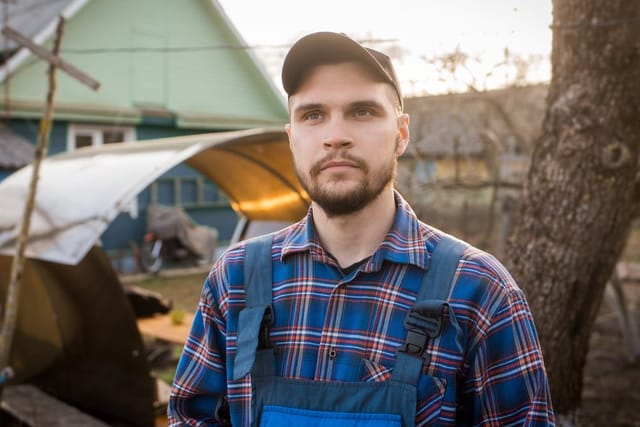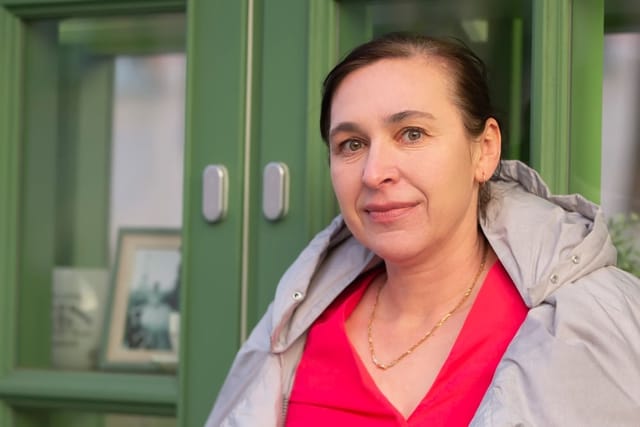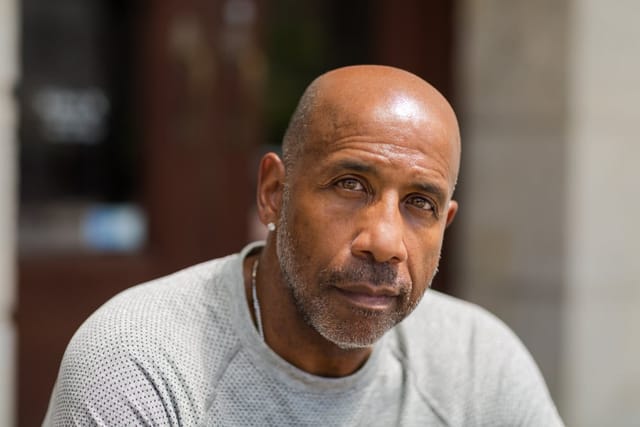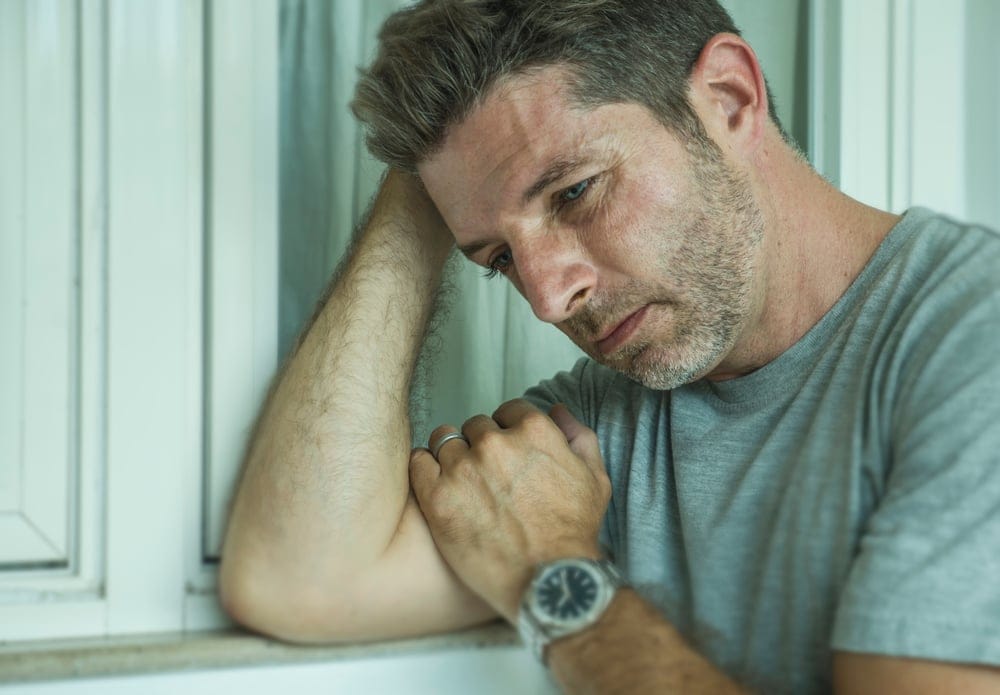Growing up in a chaotic home environment leaves a lasting mark. If you constantly felt the need to tiptoe around or brace for emotional storms, it’s natural to develop coping mechanisms to get through it. These survival skills, from obsessive people-pleasing to a deep aversion to conflict, might have served you in childhood, but they can seriously hinder your relationships and overall well-being as an adult. Here are some of the common traits shared by those who grew up in unstable environments.
1. They’re hypervigilant about their surroundings.

When you grow up feeling unsafe, you learn to scan your environment constantly for potential threats. This hyperawareness might look like always knowing who’s in the room or noticing subtle shifts in people’s moods. It’s like your internal radar is always on, picking up even the faintest signals of conflict or danger. Sometimes, it feels exhausting to be constantly on alert, as Health.com notes, but it’s a survival mechanism that’s deeply ingrained. They might even struggle to relax in environments that seem objectively safe.
You may also like: People Who Rarely Exhibit Empathy Usually Have These 16 Traits
2. They have a hard time trusting others.

If those who were supposed to protect you caused pain or instability, trusting others becomes incredibly difficult. It takes a lot for them to feel safe enough to let their guard down. They might expect betrayal or disappointment, even when there’s no evidence to support it. Opening up and making yourself vulnerable feels like a massive risk, even with people who seem genuinely kind.
Don’t miss out – follow Bolde for exclusive content daily
3. They might be conflict-avoidant.

Growing up surrounded by volatility can lead to a deep-seated fear of arguments or raised voices. They might go to great lengths to keep the peace, even if it means suppressing their own needs. They might become experts at tiptoeing around tense situations, or simply disappear the moment things feel heated. While avoiding conflict is understandable, it can make it hard to address problems directly or stand up for yourself.
You may also like: Things A Narcissist Does When You Enrage Them
4. They often have difficulty managing their emotions.

When you experience intense emotions without proper guidance as a child, it can affect your emotional regulation in adulthood. They might have explosive outbursts, shut down emotionally, or struggle to identify what they’re feeling. It’s like sometimes their emotions feel overwhelming and take over, making rational thinking almost impossible. They may struggle to express their emotions in healthy ways and worry about their reactions seeming ‘too much’.
Don’t miss out – follow Bolde for exclusive content daily
5. They are incredibly resilient.

Growing up in a difficult environment forces you to develop survival skills and inner strength. Having faced so much, they have an incredible well of resilience to draw from, even if they don’t always recognize it. They might surprise themselves with how much they can handle, even when it feels like the whole world is crashing down. Of course, resilience doesn’t mean they never struggle, but it does mean they have a remarkable ability to keep going.
You may also like: Evil People: 21 Things They Do & How To Deal With Them
6. They have difficulty setting boundaries.

Unstable or unhealthy childhoods often blur the lines of what’s appropriate, making it hard to set healthy boundaries later on. They might struggle with saying “no,” or letting people get too close too quickly. It can feel incredibly difficult to stand up for their needs if it risks someone being upset or withdrawing affection. Learning to identify where their limits are and communicate them clearly takes time and practice.
Don’t miss out – follow Bolde for exclusive content daily
7. They’re always waiting for the other shoe to drop.

When life is unpredictable, it can create a lingering sense of anxiety. They might constantly be on edge, waiting for something bad to happen, even when things are going well. They can find it hard to fully enjoy happy moments because there’s that nagging feeling in the back of their mind that it could all disappear instantly. Learning to trust that good things can last, even when their past experience says otherwise, is a continuous journey.
You may also like: 16 Cute Personality Traits Women Love In Men
8. They might grapple with low self-esteem.

Volatile environments often involve criticism, put-downs, or neglect, deeply impacting a child’s sense of self-worth. It can take a lot of work to overcome those ingrained negative beliefs about themselves. They might downplay their accomplishments, always feel like they’re not good enough, or struggle to accept praise. They may not even realize how critical they are towards themselves.
Don’t miss out – follow Bolde for exclusive content daily
9. They tend to be very empathetic.

They know what it’s like to feel pain and regularly have a strong sense of compassion for others who are hurting. They’re acutely aware of suffering and try to ease it for others, Psychology Today explains. Sometimes, they might become so focused on other people’s problems that they neglect their own needs. Their empathy is a beautiful trait, but it’s important to learn how to show that same kindness towards themselves as well.
You may also like: 15 Things Introverts Do That Come Across As Rude But Really Aren’t
10. They put a lot of pressure on themselves to be perfect.

Sometimes, as a child in a volatile situation, you feel like if you were just “better,” things might be stable. This can lead to perfectionism, holding yourself to impossible standards, and constantly striving to be ‘good enough’. That inner critic can become relentless, always pointing out flaws and never being satisfied. They might find it hard to celebrate their successes because they’re always focused on what they can improve.
Don’t miss out – follow Bolde for exclusive content daily
11. They can be people pleasers.

Desperate for love and approval, they might constantly prioritize the needs of others over their own. Pleasing others becomes a way to seek validation and feel a sense of control in their lives. But the problem is, other people’s approval is a moving target, and they can end up feeling exhausted and unappreciated. Learning that their worth doesn’t depend on external validation is a huge step.
You may also like: People Who Lack Empathy Often Had These 15 Childhood Experiences
12. They struggle with asking for help.

Children in these environments learn that needs are a burden or a sign of weakness. Therefore, asking for help in adulthood can be very hard, even if they desperately need it. It might feel like admitting failure, exposing vulnerability, or fearing that they’re being a burden. But reaching out for support is actually a sign of incredible strength.
Don’t miss out – follow Bolde for exclusive content daily
13. They might have difficulty with intimacy or vulnerability.

Building deep, trusting connections requires opening up and letting someone see the ‘real’ you. That level of vulnerability can feel terrifying to someone who grew up without a secure base. They might worry about being judged, rejected, or somehow getting hurt if they let their guard down. Building intimate connections often involves taking small risks and trusting that the other person will still be there for them.
You may also like: 15 Adult Traits of People Who Were Bullied As Kids
14. They often feel like an outsider.

Their experiences might be so different from their peers that it creates a deep sense of ‘otherness.’ They may struggle to feel like they truly belong, leading to loneliness. It can be hard to relate to others when your inner world has been marked by pain and instability. It can be difficult to let others into their world, fearing they wouldn’t understand.
Don’t miss out – follow Bolde for exclusive content daily
15. They can be highly self-critical.

That inner critic that tells them they’re not good enough, not doing enough, or will inevitably mess up, can become incredibly loud. They may struggle to recognize their strengths and accomplishments. Even when others offer praise, they might dismiss it as untrue or not well-deserved. Learning to talk to themselves the way they would a friend is a vital skill.
You may also like: 15 Types Of People You Should Never Trust In Life
16. They might struggle with decision-making.

When you grow up not having control of your life, even little decisions can feel overwhelming. Doubting your judgment and second-guessing yourself can become a habit. They might fear making the ‘wrong’ choice or overthink things to a point of inaction. Sometimes, the best decision is just to make one, even if it isn’t perfect.
Don’t miss out – follow Bolde for exclusive content daily
17. They have a complex relationship with control.

Growing up with little control can lead to a strong need for it in adulthood. They might be overly rigid in some areas, while feeling paralyzed and helpless in others. It’s a delicate balance of trying to exert control over what they can, while learning to accept things outside their influence. This is an ongoing struggle and might fluctuate depending on their stress levels.
You may also like: Don’t Share These 15 Things With Anyone — They’re Nobody’s Business But Yours
18. They are phenomenal survivors.

It takes incredible strength and courage to navigate the challenges of a volatile childhood and come out the other side. Remember, you are not defined by your past, and healing is possible. While scars may remain, they are proof of the battles they’ve overcome. They have learned invaluable lessons about resilience and the strength of the human spirit.
Hope you found this helpful. Give it a like and follow Bolde on MSN for more!



